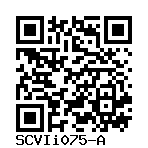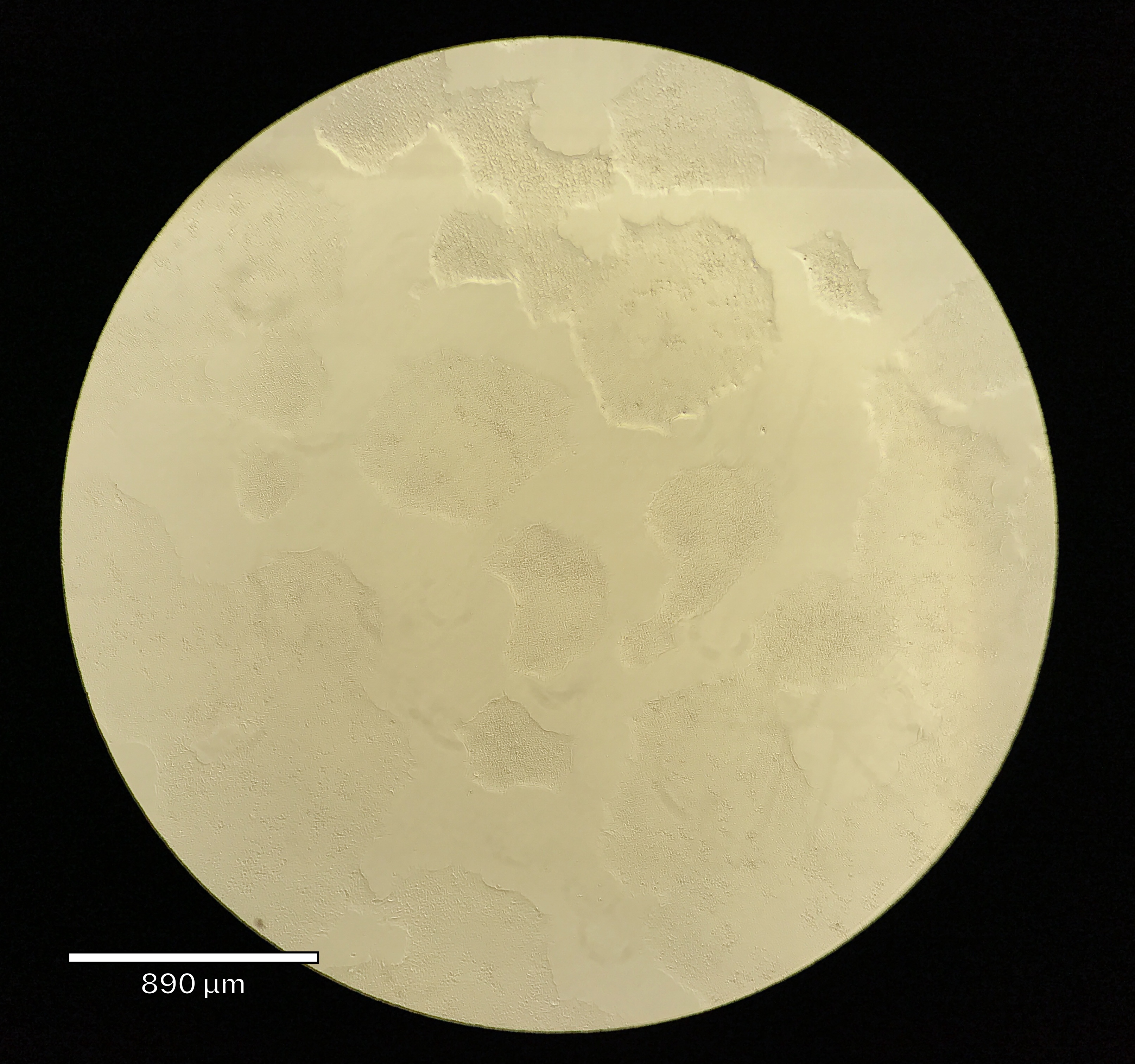SCVIi075-A
General
Cell Line |
|
| hPSCreg name | SCVIi075-A |
| Cite as: | SCVIi075-A (RRID:CVCL_C7YD) |
| Cell line type | Human induced pluripotent stem cell (hiPSC) |
| Similar lines |
CBIGi010-A (SOD1 A4S, IPSC0014) Donor's gene variants: SOD1, SOD1 Donor diseases: Amyotrophic Lateral Sclerosis CBIGi011-A (SOD1 I114T, IPSC0015) Donor's gene variants: SOD1, SOD1 Donor diseases: Amyotrophic Lateral Sclerosis CBIGi014-A (VAPB A2V, IPSC0019) Donor's gene variants: VAPB, VAPB Donor diseases: Amyotrophic Lateral Sclerosis CBIGi022-A (IPSC0028, SOD1 I114T (CBIGi022-A)) Donor's gene variants: SOD1, SOD1 Donor diseases: Amyotrophic Lateral Sclerosis CBIGi024-A (IPSC0031, SOD1 I144T (CBIGi024-A)) Donor's gene variants: SOD1, SOD1 Donor diseases: Amyotrophic Lateral Sclerosis CBIGi009-B (TMEM175 M393T homozygous (CBIGi009), IPSC0033) Donor's gene variants: TMEM175, TMEM175 Donor diseases: Parkinson Disease CBIGi027-A (LRRK2 G2385R (CBIGi027), IPSC0037) Donor's gene variants: LRRK2, LRRK2 Donor diseases: Parkinson Disease CBIGi007-A (IPSC0008, TMEM175 Q65P heterozygous) Donor's gene variants: TMEM175, TMEM175 Donor diseases: Parkinson Disease CBIGi009-A (IPSC0012, TMEM175 M393T homozygous) Donor's gene variants: TMEM175, TMEM175 Donor diseases: Parkinson Disease CBIGi013-A (IPSC0017, LRRK2 M1646T (heterozygous)) Donor's gene variants: LRRK2, LRRK2 Donor diseases: Parkinson Disease CBIGi015-A (IPSC0020, LRRK2 N551K-R1398H-K1423K (protective haplotype)) Donor's gene variants: LRRK2, LRRK2 Donor diseases: Parkinson Disease CBIGi016-A (IPSC0021, Parkin homozygous deletion between exon 3 and 4) Donor's gene variants: PRKN, PRKN Donor diseases: Parkinson Disease |
| Last update | 5th April 2023 |
| User feedback | |
Provider |
|
| Generator | Stanford Cardiovascular Institute (SCVI) |
| Owner | Stanford Cardiovascular Institute (SCVI) |
| Distributors | |
| Derivation country | United States |
External Databases |
|
| BioSamples | SAMEA112288082 |
| Cellosaurus | CVCL_C7YD |
| Wikidata | Q123033415 |
General Information |
|
| Publications | |
| * Is the cell line readily obtainable for third parties? |
Yes Cell line can only be used in: research
Research use: allowed
|
Donor Information
General Donor Information |
|
| Sex | female |
Phenotype and Disease related information (Donor) |
|
| Diseases | A disease was diagnosed.
|
External Databases (Donor) |
|
| BioSamples | SAMEA112288083 |
Ethics
| Has informed consent been obtained from the donor of the embryo/tissue from which the pluripotent stem cells have been derived? | Yes |
| Was the consent voluntarily given? | Yes |
| Has the donor been informed that participation will not directly influence their personal treatment? | Yes |
| Can you provide us with a copy of the Donor Information Sheet provided to the donor? | No |
| Do you (Depositor/Provider) hold the original Donor Consent Form? | Yes |
| Please indicate whether the data associated with the donated material has been pseudonymised or anonymised. | pseudonymised |
| Does consent explicitly allow the derivation of pluripotent stem cells? | Yes |
| Does consent prevent CELLS DERIVED FROM THE DONATED BIOSAMPLE from being made available to researchers anywhere in the world? | No |
| How may genetic information associated with the cell line be accessed? | Controlled Access |
| Will the donor expect to receive financial benefit, beyond reasonable expenses, in return for donating the biosample? | No |
| Has a favourable opinion been obtained from a research ethics committee, or other ethics review panel, in relation to the Research Protocol including the consent provisions? | No |
| For generation of the cell line, who was the supplier of any recombined DNA vectors or commercial kits used? |
hIPSC Derivation
General |
|
| Source cell type |
A peripheral blood cell with a single nucleus. This category includes lymphocytes and monocytes.
Synonyms
|
Reprogramming method |
|
| Vector type | Non-integrating |
| Vector | Sendai virus |
| Is reprogramming vector detectable? |
No |
| Methods used |
RT-PCR
|
Vector free reprogramming |
|
Other |
|
| Derived under xeno-free conditions |
Unknown |
| Derived under GMP? |
Unknown |
| Available as clinical grade? |
Unknown |
Culture Conditions
| Medium |
Essential 8™ Flex
|
Characterisation
Analysis of Undifferentiated Cells
Immunostained of three pluripotency markers: Sox2, Nanog, Oct3/4
Genotyping
Karyotyping (Cell Line) |
|
| Has the cell line karyotype been analysed? |
Yes
CN=2, Female normal karyotype
|
Other Genotyping (Cell Line) |
|



Login to share your feedback, experiences or results with the research community.